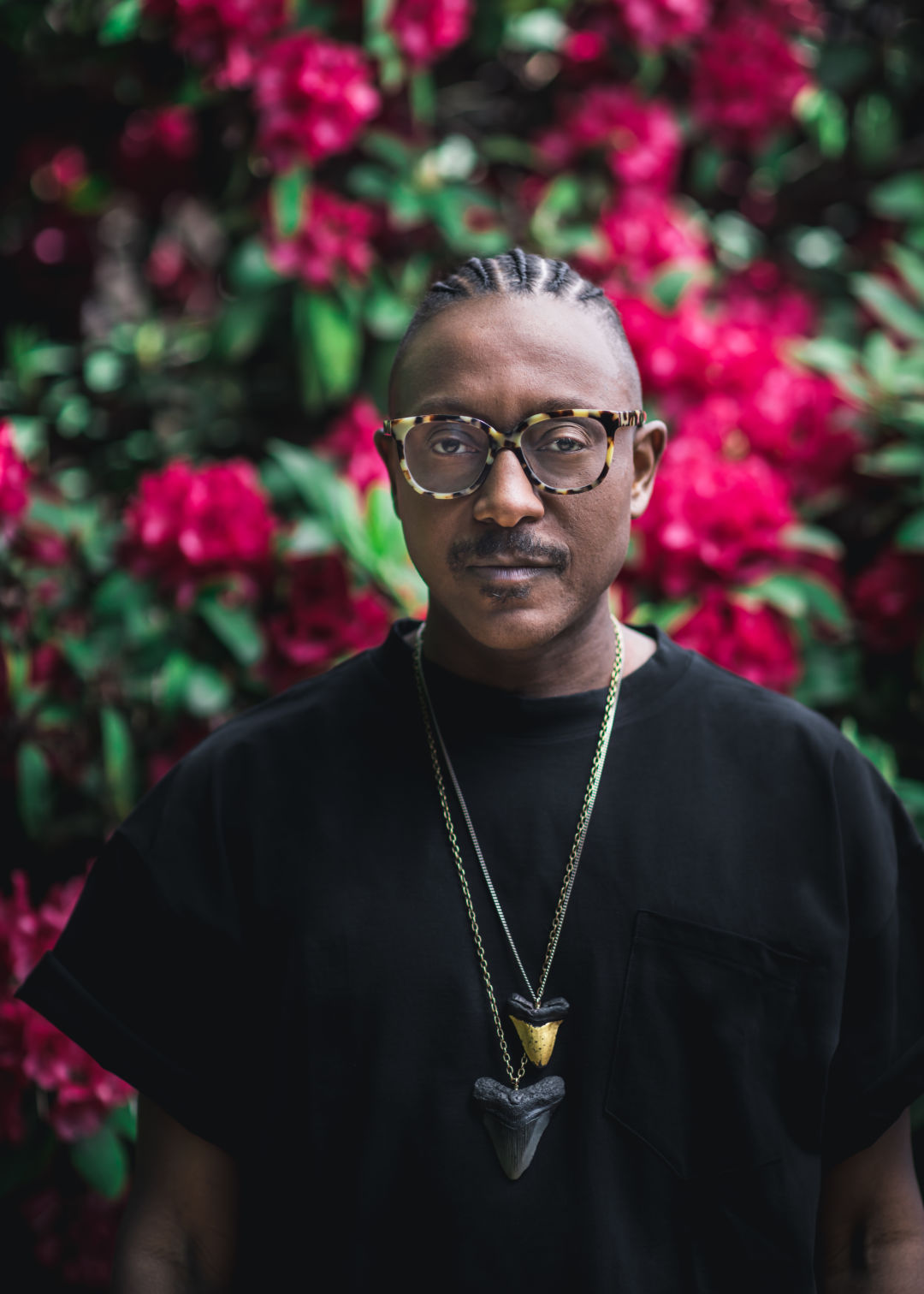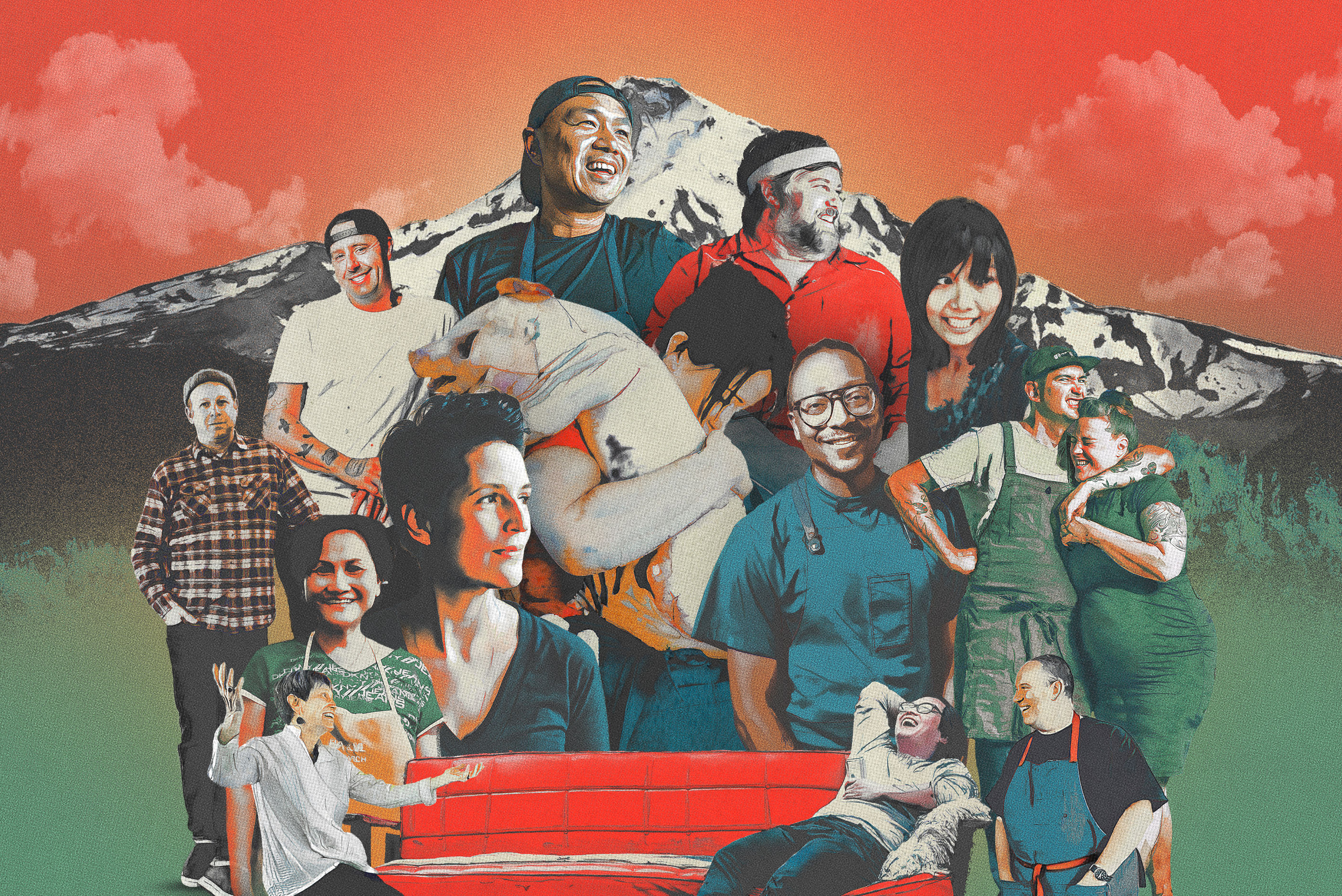"The Whole System Came Down. Let's Fix Everything."

Chef Gregory Gourdet.
Image: Courtesy Eva Kosmas Flores
Editor's note: A shortened version of this article appeared in the July/August issue of Portland Monthly
Portland's iconic chef Gregory Gourdet was on the cusp of an exciting year: a major cookbook deal, a plan to open his own restaurant, at last, celebrating his Haitian roots, and another shot at the title of Bravo's Top Chef, the food-world's favorite duke-it-out cooking show. In his last outing, in 2015, Gourdet made it the final round, where he fiercely battled LA chef Mei Lin. He lost the war, but won millions of fans around the country.
Then came two seismic events, the pandemic and the protests against American police brutality. Both hit him straight in the heart.
KB: Top Chef premiered on March 19, just two days after the mandated restaurant shutdown. The timing must have been crushing. As Portland's food scene crumbled, you were killing it on early episodes. Influential TV podcast The Watch called you “the best character on TV right now.” Then, disappointment over your ill-fated move — serving warm truffles to horrified Italian chefs — coincided with real-life tragedy...
GG: It was awkward at first. We had been planning the first Bravo Top Chef Food & Wine Festival to coincide with the premiere in LA—red carpet, panels, the works. It was canceled pretty last minute. When it came time to promote the show, we were all excited but didn't want to sound tone-deaf. Eventually, even for me, it became one hour a week to escape the current reality, to remember what restaurant life was like. I was happy to bring some joy to the Haitian community and industry friends trying to make sense of everything falling apart.
I went back on the show again because I like to push myself. Top Chef is an amazing growth experience, as unreal and heavily produced as it is. You're cooking in fundamentally weird, crazy situations, doing the best you can … that's the realest thing for me as a chef. I wondered how I would feel watching my elimination. I took it quite well. I did my best and made a mistake that sent me home; no regrets.
I had been following the deaths of Breonna Taylor and Ahmaud Arbery. When George Floyd was killed, it was a tipping point for me as well. Lots of despair, sadness, outrage. Closing the Top Chef chapter allowed more time for reflection.
You're a leader and pioneering voice on so many critical issues—chef sobriety among them. Right now, are people seeking your thoughts on race relations in America?
Right when everything started, after the George Floyd murder, we had emergency meetings on how to move forward, what to address. Do we make a public statement? A lot of white friends were checking in, asking for advice. It was a lot. I felt more despair than I have in some time.
My friend Kwame Onwuachi helped me see things more clearly. [The gifted 30-year-old D.C.-based chef is author of Notes of a Young Black Chef.] I said, "What should we do?" He said, "The best time to plant a tree is 20 years ago."
At first, I thought, "What?" Then, it just made sense; it clicked: Change doesn't happen overnight. Small steps lead to big changes. Ten years, 20 years from now, people can look back at the groundwork we're laying right now, what we're accomplishing for this generation, this moment in history.
Talking to my Black chef community, we all feel a lot of pressure, with people leaning on us in the moment. We're all in the same position. We don't know what to say or do; it's affecting us, too. We've been in this conversation for a long time. When will it end?
I'm old enough to remember Rodney King. If anything, we say collectively: It's up to each person to find their own answers. So many people just race to put out a message of solidarity. Knowing where you stand is appreciated. But more important is to do the work. Do you have Black leaders in your company? Start there.
The opening of your Haitian spot Kaan has been moved to mid-2021. How has the pandemic impacted your thoughts about restaurants going forward?
The situation is definitely grave. Imagine: you've spent your career working for something, every cut, every burn, every late night, every 17-hour shift. Everything you ever dreamed about, everything you ever learned. To potentially lose that is devastating. The whole system came down. We don't know exactly why it fell apart. But a lot of good things might come out of the industry being decimated. Since it's completely broken, let's fix everything. Now, we can think about what to save and what to leave behind. Community engagement; thinking about the underserved; the call for equality in kitchens—these are the best things coming out of this. Dismantling racism in the industry? Now is the time for all of us to do the hard, long work.
Follow Gourdet on IG at @GG30000.
Listen to Karen Brooks and Katherine Chew Hamilton discuss how the food scene is changing in response to the protests and the pandemic.




